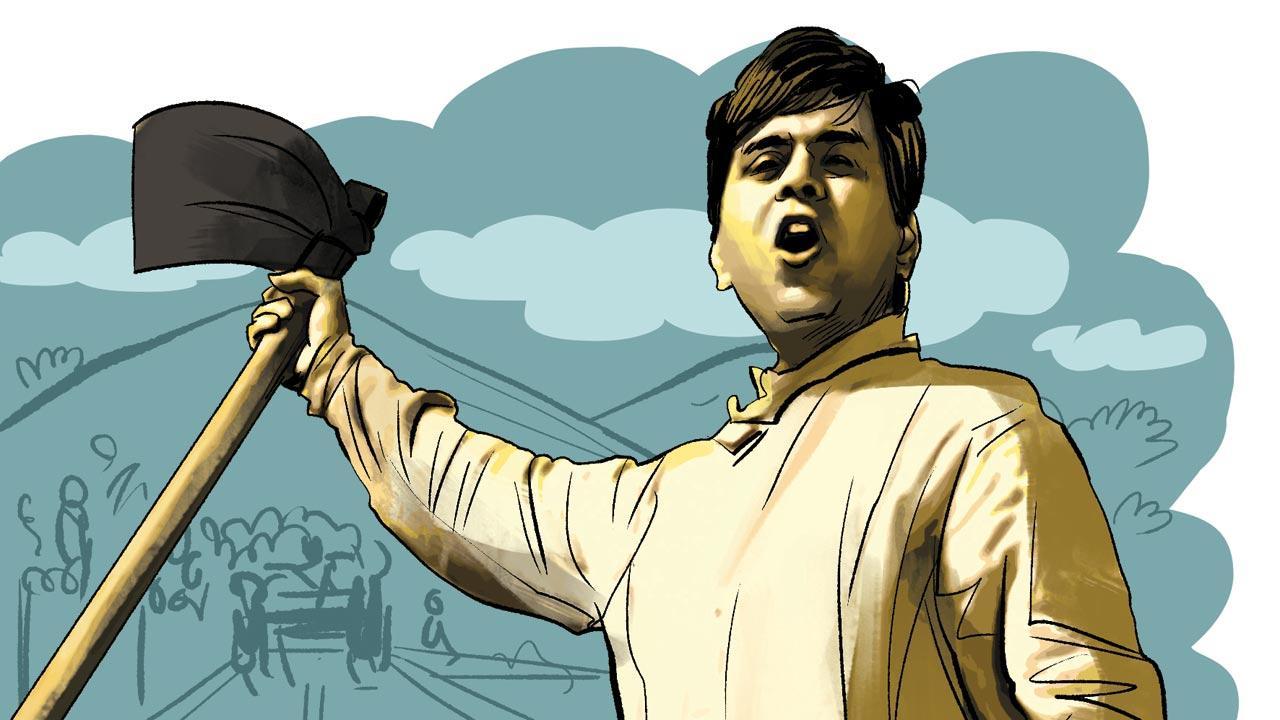We alleviate this loneliness by integrating ourselves in relationships, consolidating our fragments in dreams. Sometimes those dreams are movies

Illustration/Uday Mohite
As I have never been a Dilip Kumar fan—I wondered about the strange sadness I felt at his death. Standing atop the young hill of the 21st century, the passing of monumental figures of the 20th century, evokes a sense of time rolling away from us, like mists over mountains in Madhumati. Nostalgia seeks to present time and people as absolutes. So, did Dilip Kumar shape the times, or did the times shape Dilip Kumar? Well, does kal mean yesterday or does it mean tomorrow? Time is always as incomplete as are we, who are simply bits of time—life-time—longing for lost yesterdays, anxious for fulfilling tomorrows, a little lonely in the today. We alleviate this loneliness by integrating ourselves in relationships, consolidating our fragments in dreams. Sometimes those dreams are movies.
ADVERTISEMENT
An iconic Dilip Kumar film, Naya Daur presents a dream of togetherness. In it the advent of capitalist thinking—valuing profit and efficiency above people and relationships—disturbs an apparently harmonious village. When money singularly determines all meaning, it threatens not only livelihoods but emotions. A romantic misunderstanding between two friends is fuelled (scaled up?) by the capitalist spirit so that friendship becomes suspicion and competition, causing Ajit to cry out at one point “Mera koi dost nahin hai” (No one is my friend), voicing the anxiety of what development will mean for our collectivities. Finally though, co-operation triumphs over competition, restoring the collective, in an apparently happy ending.
But film endings cannot be taken at face value any more than dreams can be understood by taking their fantastical images literally. Their meanings lie in how we experience them and what they unlock in us. After all, film-collectives often elide caste and gender to glorify a central masculine, upper-caste figure. And in Naya Daur co-operation defeats competition in, well, a competitive race between a tanga and a bus. The collective triumphs, but Ajit’s romantic disappointment remains unacknowledged.
The violent impact of collective thinking on individual desire suffuses another iconic Dilip Kumar film—Andaaz. A love triangle which hinges on how a woman’s ‘andaz’—is always open to interpretation by the world. Eventually the suspicions and interpretations of men (Raj Kapoor, Dilip Kumar, Sapru) dictate the meaning of reality, rather than the feelings of this woman (Nargis), with tragic consequences. The film ends on a submissive note, but the run-time is so strongly rooted in Nargis’s subjectivity, that its meaning can hardly be fixed by the ending.
Viewed as a collective, films offer us a range of meanings to traverse as we make sense of our lives. To be stuck in one meaning is the definition of loneliness. To exist in multiple overlapping meanings of ourselves, is one way the dream of co-existence can include ever-multiplying realities and a glimpse of freedom. The conservative troll and the woke critic both insist that only the literal is meaningful and dogma determines meaning—that public and private must conform instead of overlap—eroding the space to express and resolve messy emotions and realities.
Perhaps these thoughts of fertile double meanings—an actor who spoke as if in private dialogue on a public screen, of an audience fantasising individually in a theatre alongside others, of untidy selves permitted representation, drifted like clouds through my mind when Dilip Kumar died, and it reminded me why our times are sometimes a little too lonely, that’s all.
Paromita Vohra is an award-winning Mumbai-based filmmaker, writer and curator working with fiction and non-fiction. Reach her at paromita.vohra@mid-day.com
 Subscribe today by clicking the link and stay updated with the latest news!" Click here!
Subscribe today by clicking the link and stay updated with the latest news!" Click here!






